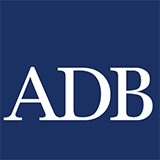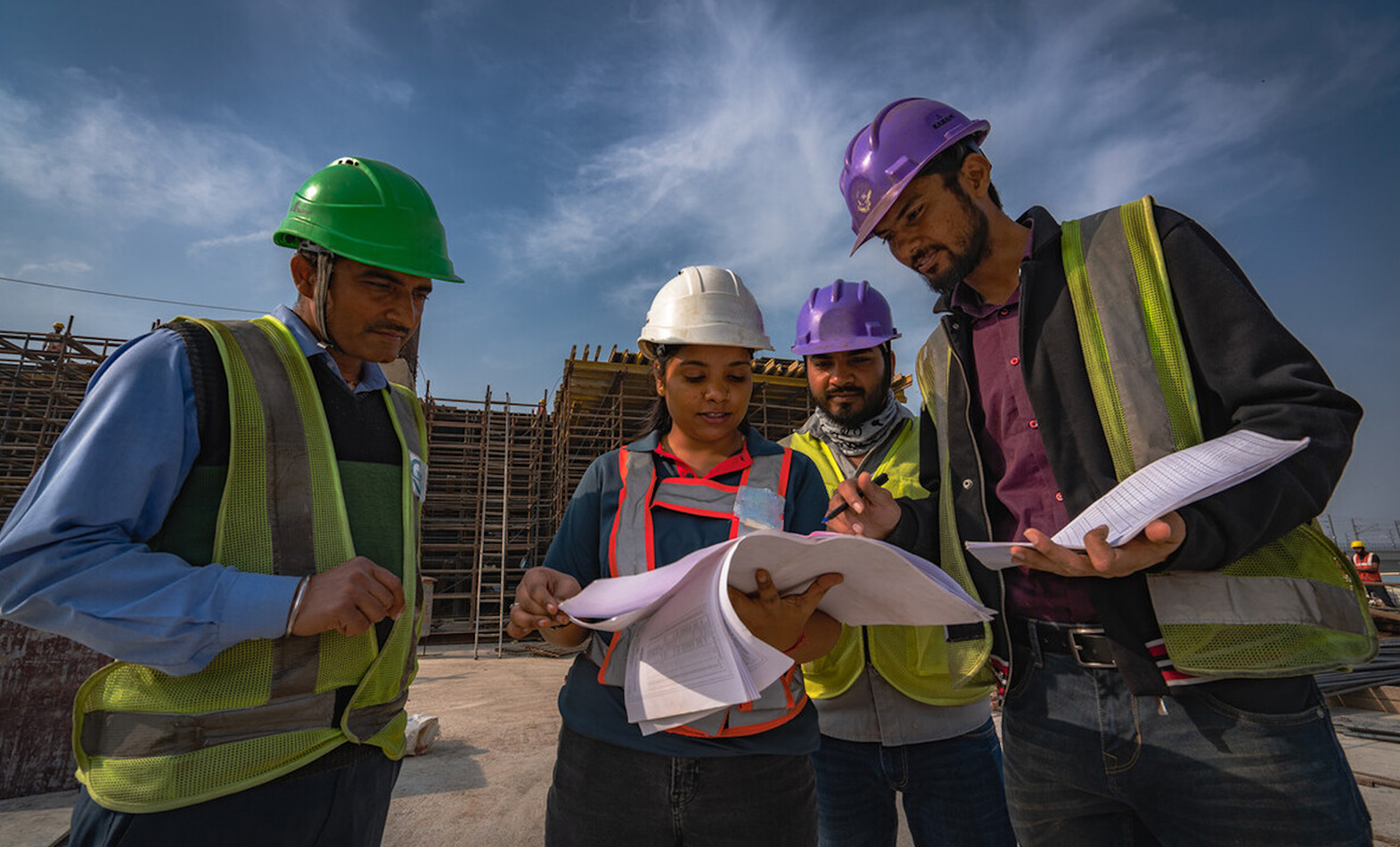In 2022, ADB’s financing partnerships helped developing member countries become more resilient to climate change and future shocks with institutional reforms, capacity building, and enhanced service delivery for better public administration and fiscal management.
Operational Priority Thrusts
ADB will support public management reforms to improve governance and create an enabling environment for sustainable growth by
- supporting public sector management reforms and financial stability
- strengthening governmental service delivery
- strengthening public sector capacity and standards
In 2022, governments in the Asia and Pacific region continued working toward recovery from the COVID-19 pandemic while working on their climate change commitments under the Paris Agreement. ADB has been supporting its developing member countries (DMCs) in developing or reorienting their governance approaches toward a pandemic-resilient economy by managing quality public infrastructure, reforming state-owned enterprises, and improving tax systems to raise revenue. ADB’s financing partnerships are also orienting their investments and knowledge work along the same lines.
ADB’s financing partners have provided continuing support to governments in the region to improve public service delivery. Compared with other sectors, public sector management had the highest commitment from financing partners in 2022, with 22 projects and technical assistance (TA). Of these, nine are TAs for capacity development and policy advice, and five are fast-disbursing policy-based loans.
In 2022, ADB and its financing partners cofinanced 93 sovereign investment projects and technical assistance that are in line with its Strategy 2030’s focus on strengthening governance and institutional capacity, representing 75% of total sovereign cofinanced projects and technical assistance.
“Good governance helps drive good economic growth. Better government service delivery, financial management, and regulations will improve the business environment, supporting economic growth and job creation as countries move past COVID,” said Hiranya Mukhopadhyay, chief of ADB’s governance thematic group.
The Republic of Korea e-Asia and Knowledge Partnership Fund financed the highest number of projects in 2022, with 17 projects and technical assistance. Other major governance financing partners were the Japan Fund for Prosperous and Resilient Asia and the Pacific and the Government of Australia.
The Strengthening Public Management program is rebuilding public institutions and reforming systems and processes at the local level in Nepal.
Learn moreCreating Resilient Institutions
Stronger governance and expanded institutional capacity can provide the keys to implementing sound policies for a more resilient Asia and the Pacific. ADB advanced these objectives in 2022 in its investment projects and grants.
In Papua New Guinea, ADB approved a $250 million policy-based loan to support the third subprogram of a broader state-owned enterprises reform program that ADB has been supporting since 2020. New Zealand is providing parallel grant cofinancing of $1 million. The program is being implemented in close coordination with development partners, including the governments of Australia and New Zealand and the International Monetary Fund.
Policy reforms under the third subprogram will further strengthen legislative and policy frameworks for state-owned enterprises, enhance governance and transparency, and improve the financial sustainability of priority SOEs. Reforms include amendments to the Independent Consumer and Competition Commission Act (2002) and the approval of amendments to the Public–Private Partnerships Act (2014) by Parliament. Several reforms support gender equality, including increasing the representation of women on state-owned enterprise boards, strengthening reporting on gender indicators, and carrying out gender analysis on new investments.
In Central Asia, ADB is providing $700,000 in technical assistance (TA) support for the preparation of regional infrastructure and connectivity projects in the Central Asia Regional Economic Cooperation (CAREC) and the Caucasus region during 2021–2023. The Republic of Korea e-Asia and Knowledge Partnership Fund is also providing $700,000 in cofinancing.
Covering the Kyrgyz Republic, Mongolia, Pakistan, Tajikistan, and Uzbekistan, the TA will help reduce the processing time for feasibility studies and preparatory activities of high-quality infrastructure projects that would provide greater regional and cross-country connectivity. In line with the pillar on quality infrastructure governance, the project will make good use of the CAREC Program platform for better coordination among countries, ensure that project designs will have maximum impact in improving regional cooperation and integration, and enhance the capacities of developing member countries (DMCs) in the CAREC and Caucasus regions in planning and preparing effective projects and activities in the future.
For the Solomon Islands, ADB developed a program to support economic and fiscal recovery from the COVID-19 pandemic in collaboration with the World Bank; the governments of Australia, Japan, and New Zealand; and the European Union; and in close and regular consultation with the International Monetary Fund. ADB has committed a $5 million policy-based loan and a $5 million grant to finance the first of two subprograms. Australia has committed just under $1.3 million in grants as did New Zealand with a grant of $1.7 million. The World Bank is also providing a loan and a grant of $3.5 million and $26.5 million, respectively.
Subprogram 1 (2022-2023) will support reforms to develop and introduce new policies, regulations, and legislation. These policy reforms will strengthen tax collection and administration, debt management, public financial management and procurement, supervision and regulation of financial institutions, state-owned enterprise governance, and anticorruption efforts. The subprogram will also establish new and functional organizational units to promote economic and fiscal recovery.
Subprogram 2 will support the implementation, embedding, and expansion of the policy and legislative decisions approved in the first subprogram to help realize and sustain development impacts. For this second subprogram, ADB has pipelined equivalent financing in 2024.
Good governance helps drive good economic growth. Better government service delivery, financial management, and regulations will improve the business environment, supporting economic growth, and job creation as countries move past COVID.
Hiranya Mukhopadhyaychief of governance thematic group, ADB
The Weathering Exogenous Shocks Program is supporting the government in strengthening resilience among Mongolia’s population.
Learn moreToward Resilient Governance
ADB’s financing partnerships are vital to strengthening governance institutions and improving public financial management (PFM). In the past year, ADB’s financing partners have shifted gears and adopted new priorities for more resilient governance in the Asia and Pacific region. Apart from investment projects and grants, they have also supported knowledge work, through ADB-administered trust funds, aligned with ADB’s governance thrusts on quality infrastructure governance, state-owned enterprise reforms, and tax system reforms.
The Japan Fund for Prosperous and Resilient Asia and the Pacific (JFPR) has identified quality infrastructure investment (QII), following the G20 Quality Infrastructure Investments Principles, as one of its new priority areas to highlight the importance of infrastructure investment in closing infrastructure gaps in developing member countries (DMCs). The JFPR has also expanded into other priority areas, including support to DMCs to strengthen PFM-related policies, systems, procedures, including expenditure and debt sustainability and management, as well as to improve domestic resource mobilization. The JFPR will help support the promotion of QII in the Asia and Pacific region.
The EAKPF supported the publication of the second edition of Government at a Glance Southeast Asia (GAAG SEA). The second GAAG SEA will support governments by benchmarking their operations and delivery against international standards. This will provide the evidence base to help regional governments identify key reforms to improve the effectiveness of public governance.
The Domestic Resource Mobilization Trust Fund (DRMTF) continues to play a key role in achieving the initiatives of the Asia Pacific Tax Hub. Launched in 2021, the hub is helping DMCs raise more domestic revenues and strengthen their cooperation on international tax matters to finance their own development projects and programs. Partner contributors to the DRMTF are Japan and the International Cooperation and Development Fund from Taipei,China, which joined the trust fund in April 2022.
“Robust fiscal systems are critical if the Asia and Pacific region is to make significant progress toward poverty reduction and achieve the Sustainable Development Goals,” added Governance Thematic Group Chief Mukhopadhyay.
ADB and its financing partners will continue supporting DMCs in creating efficient tax systems, enhancing tax systems and transparency, improving the quality of infrastructure investments, and ultimately spurring green and resilient governance across the Asia and Pacific region.
Robust fiscal systems are critical if the Asia and Pacific region is to make significant progress toward poverty reduction and achieve the Sustainable Development Goals.
Hiranya Mukhopadhyaychief of governance thematic group, ADB


